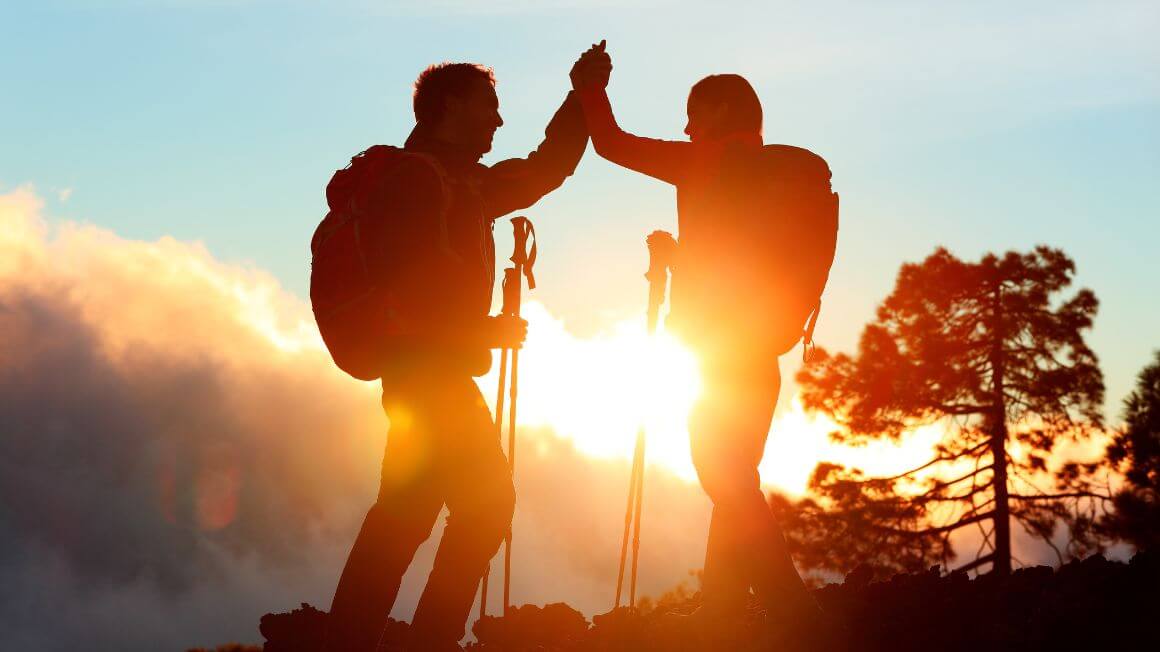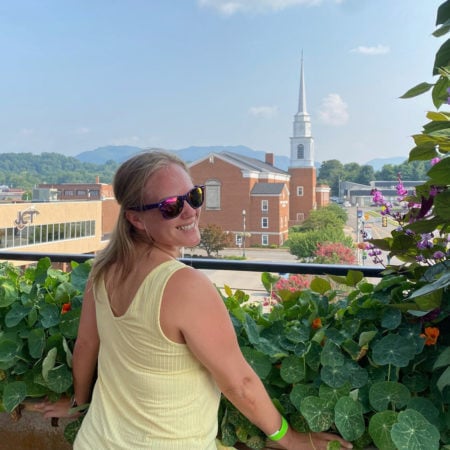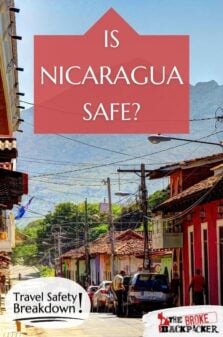Wedged between Costa Rica and Honduras, Nicaragua is a good all-round destination. Think beautiful cathedrals, elegant architecture, a ton of history, and loads of nature to get to grips with.
However, Nicaragua was hit with renewed political trouble in 2018, and it was hit hard. There have been widespread protests against a corrupt government and these are sometimes met with force. Given all the recent reports, it’s no wonder so many ask if Nicaragua is safe.
The question of safety in Nicaragua is an interesting case – while it may appear unsafe in a lot of ways, tourism safety in Nicaragua is still fairly high. Their trip may be somewhat hampered but that doesn’t mean their life will be in danger or that they won’t have the time of their life!
For those who still want to go, we’ve created this guide for staying safe in Nicaragua. We want to make sure you’re well-equipped with some sound travel tips for Nicaragua and to help you avoid becoming a victim.
From concerns about the safety of solo travel in Nicaragua to wondering if it’s safe to take your family or even as a woman, we’re covering all of this and more in this handy guide. We’ll even get into whether or not it’s safe to live in Nicaragua, if, for some reason, you were planning on moving.
So maybe you wanted to visit Nicaragua and then heard about all the trouble. To answer the burning question of “Is it safe to travel to Nicaragua right now”, I present you this guide.
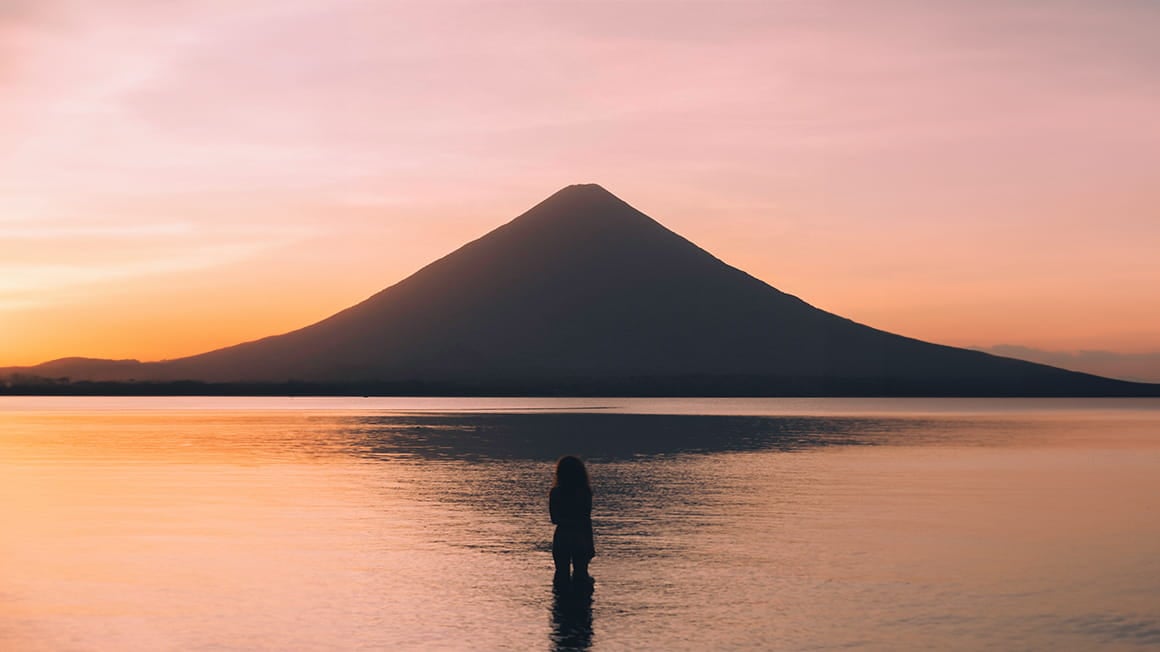
Photo: @drew.botcherby
The Broke Backpacker is supported by you. Clicking through our links may earn us a small affiliate commission, and that's what allows us to keep producing free content 🙂 Learn more.

Unlock Our GREATEST Travel Secrets!
Sign up for our newsletter and get the best travel tips delivered right to your inbox.
- How Safe is Nicaragua? (Our take)
- How Safe is Nicaragua to Visit Right Now?
- Safest Places in Nicaragua
- 25 Top Tips for Traveling Safely to Nicaragua
- How Safe is Nicaragua to travel alone?
- Is Nicaragua safe for female travellers?
- More on Safety in Nicaragua
- FAQ about Staying Safe in Nicaragua
- So, is Nicaragua Safe?
- Buy Us a Coffee!
How Safe is Nicaragua? (Our take)
Backpacking in Nicaragua has always been very popular. The locals are welcoming, there are epic volcanoes to climb, beaches to laze on, the second largest rainforest in the Americas to explore, history abound; it’s a travellers’ paradise!
Sadly, Nicaragua has been experiencing a lot of turbulence in recent years. Due to the recent political Unrest of 2018, much of the country is difficult to visit. A lot of accommodation in Nicaragua has been shut down and citizens have been fleeing the country.
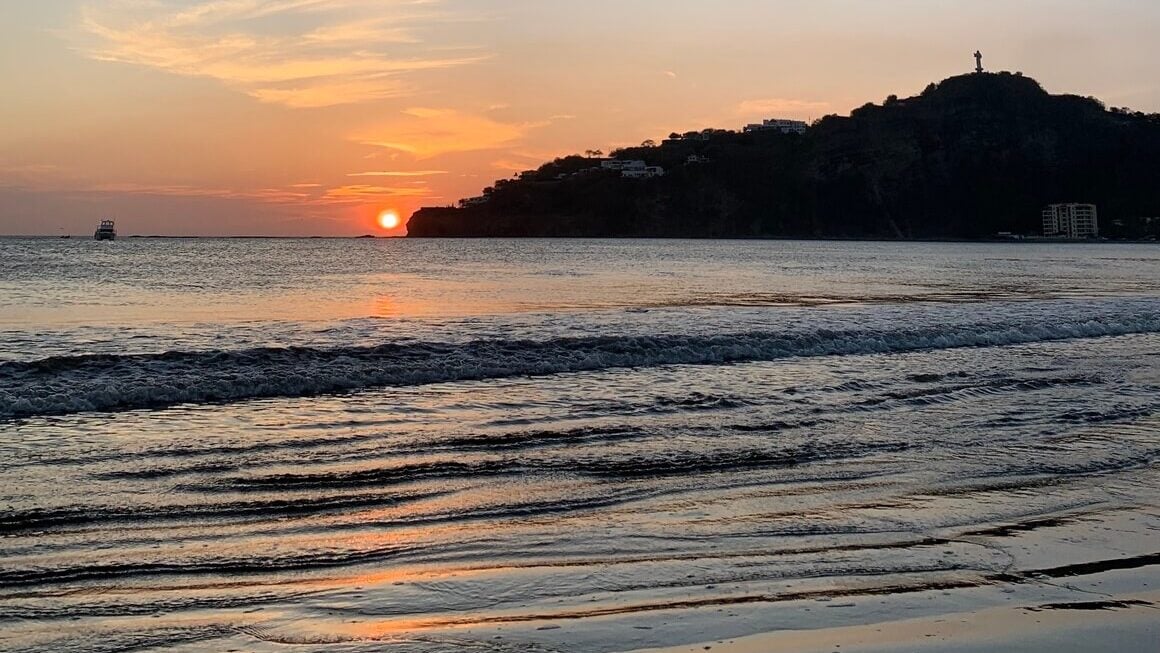
Photo: @joemiddlehurst
Petty crime is steadily on the rise (though it’s not out of control like in some other places in Latin America). Most people can still visit Nicaragua without getting robbed – they just have to be more cautious than usual.
Truth is: Nicaragua has always been an alternative destination for intrepid travellers, regardless of political situations. Neighbouring Central American countries, Costa Rica and Honduras, were always the more ‘touristy’ options and Nicaragua has always been the odd man out.
This has little to do with danger though and shouldn’t stop you from visiting Nicaragua! Nicaragua is still safe for tourists, within reason.
There is no such thing as a perfect safety guide, and this article is no different. The question of “Is Nicaragua Safe?” will ALWAYS have a different answer depending on the parties involved. But this article is written for savvy travellers from the perspective of savvy travellers.
The information present in this safety guide was accurate at the time of writing, however, the world is a changeable place, now more than ever. Between the pandemic, ever-worsening cultural division, and a click-hungry media, it can be hard to maintain what is truth and what is sensationalism.
Here, you will find safety knowledge and advice for travelling Nicaragua. It won’t be down to the wire cutting edge info on the most current events, but it is layered in the expertise of veteran travellers. If you use our guide, do your own research, and practise common sense, you will have a safe trip to Nicaragua.
If you see any outdated information in this guide, we would really appreciate it if you could reach out in the comments below. We strive to provide the most relevant travel information on the web and always appreciate input from our readers (nicely, please!). Otherwise, thanks for your ear and stay safe!
It’s a wild world out there. But it’s pretty damn special too. 🙂
How Safe is Nicaragua to Visit Right Now?
This is a bit of a tricky one. While Nicaragua is not a country for first-time travellers, it’s definitely a great destination for experienced backpackers.
Tourism still is the most important service industry in the country. It was once a huge boon for the local economy, as poverty was stymied and jobs were created thanks to tourists. In 2018, however, it has been severely affected by political unrest.
Now? Many Nicaragua travel advisories warn against “all but essential travel” to Nicaragua. So whether or not you want to listen to these warnings is up to you. Only you, ultimately, can make the call of how safe Nicaragua is for you.
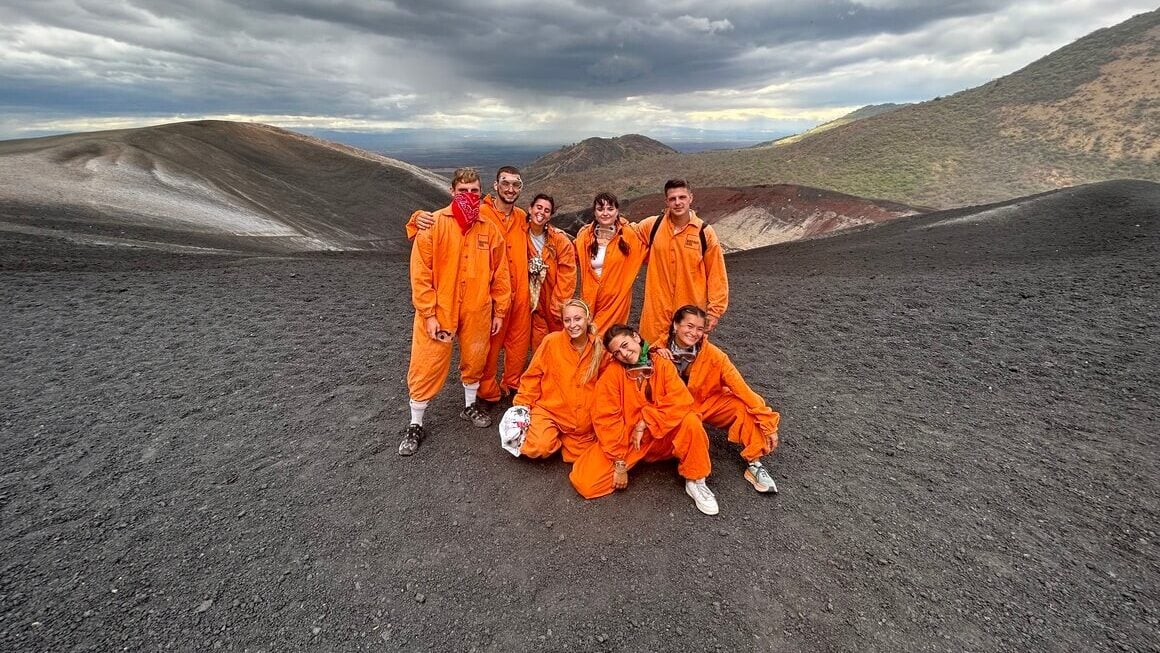
Photo: @joemiddlehurst
There has been some progress lately in Nicaragua’s safety and political situation, but it’s slow going.
Censorship of the media, especially when students are involved and killed, has been widespread. So has the dismissal of teachers. However, much of this doesn’t affect tourist safety in Nicaragua.
Managua Augusto Sandino Airport is still receiving international flights. Despite government warnings, people are still travelling to Nicaragua. A fair few backpackers have even been staying in Granada recently, as well as San Juan del Sur.
So is Nicaragua safe to visit in 2021? Yes, as long as you don’t get involved in politics and keep your wits about you. No one is targeting tourists (aside from the pickpockets) here.
Nicaragua Travel Insurance
ALWAYS sort out your backpacker insurance before your trip. There’s plenty to choose from in that department, but a good place to start is Safety Wing.
They offer month-to-month payments, no lock-in contracts, and require absolutely no itineraries: that’s the exact kind of insurance long-term travellers and digital nomads need.
SafetyWing is cheap, easy, and admin-free: just sign up lickety-split so you can get back to it!
Click the button below to learn more about SafetyWing’s setup or read our insider review for the full tasty scoop.
Want to save money on accommodation?
Enjoy 15% OFF on stays ALL around the world.
Safest Places in Nicaragua
When choosing where you’ll be staying in Nicaragua, a bit of research and caution is essential. You don’t want to end up in a sketchy area and ruin your trip. To help you out, we’ve listed the safest areas to visit in Nicaragua below.
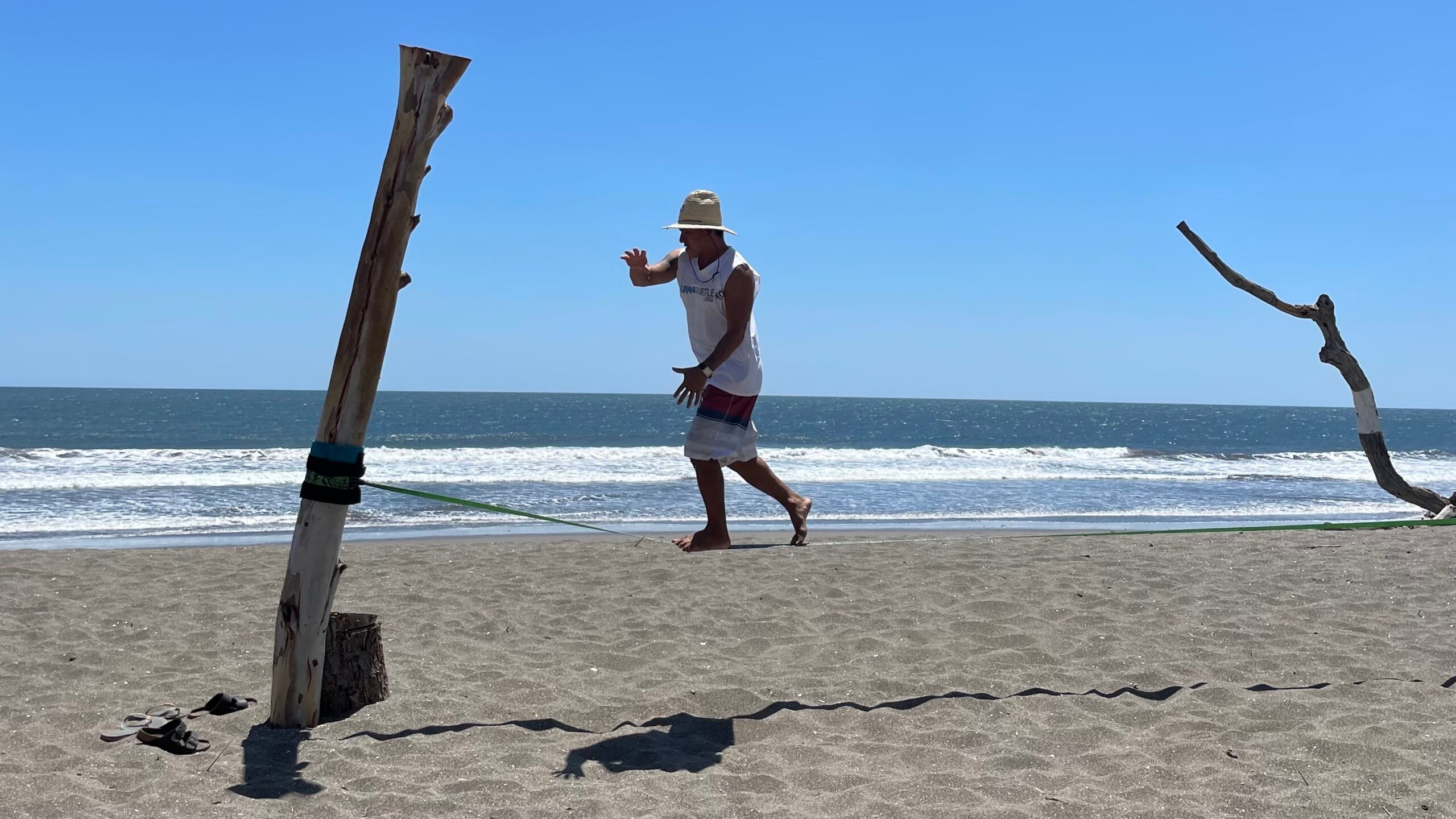
Leon
This stunning colonial city is a great place to get stuck. While it’s always been on the backpacker map, Leon is starting to really gain a lot of popularity as a must-visit destination while in Nicaragua. There are plenty of historical attractions to visit, and you can even find pretty cool nightlife here.
Make sure to check out the stunning cathedral in the main square, for just a dollar you can get right up on top of the whitewashed roof where you will be rewarded with stunning panoramic views of the city.
Leon is a little bit more laid back than other cities in Nicaragua, which also shows in the safety statistics. While you still shouldn’t be careless, it’s definitely less sketchy in Leon than elsewhere. However, we definitely wouldn’t recommend walking around alone at night. It’s just a risk that you can very easily avoid.
Granada
An easy hop from Leon by chicken bus, Granada is another colonial city with gorgeous buildings, vibrant nightlife and historical sites. You don’t need too long, perhaps just a day, to get a feel for this city but make sure you visit the cathedral and bargain hunt for hand-made souvenirs in the central square.
This picturesque lakeside town boasts charming cobblestone streets, friendly locals, brooding nearby volcanoes, and the beautiful yellow cathedral smack dab in the middle.
For any backpacker travelling through Nicaragua, you will find yourself in Granada at some point. With tourism on the rise in recent years, a boatload of hostels have sprung up all across the city and there are many eco-lodges on the small islands across the lake. Not only that, Granada has also developed a pretty solid infrastructure which makes it one of the safest cities to visit in Nicaragua.
Playa Maderas
A popular surfer hang-out, this is a good place to rent a board for a day ($10) and hit the waves. Most travelers backpacking Nicaragua want to have a crack at surfing and this is one of the best places to learn.
This beach is however normally pretty busy and the food is very expensive. Bring snacks. Likewise, it is an expensive place to stay although if you have a tent you can camp for free. We recommend turning right (as you face the ocean) and walking along the beach, over the rocks and onto the next beach to enjoy stunning views and clear water.
The next beach is completely isolated – it takes just two minutes to walk there but there are currently no buildings, whatsoever. It is pretty much like having your own private beach. If you’re there at the right time of the year, you may see baby turtles scrambling down towards the sea.
Places to avoid in Nicaragua
Unfortunately, not all places in Nicaragua are safe. You need to be careful and aware of your surroundings pretty much anywhere you go in the world, and the same goes for visiting Nicaragua. To help you out, we’ve listed a couple of no-go or caution areas below:
- Public transport stations – Pickpocketing is common at bus stations, on crowded buses, and in the markets
- Managua – Crime occurs in the capital Managua, old cathedral is a well-known crime pit, on Avenida Bolivar
- Rene Schick and Jorge Dimitrov – Gang violence is highly present here
- Zona Rosa – This area in known for prostitution. Ideally, stay away!
- Puerto Cabezas, Bluefields, and the Corn Islands – Street crime is pretty common here but can be avoided with a bit of common sense and caution.
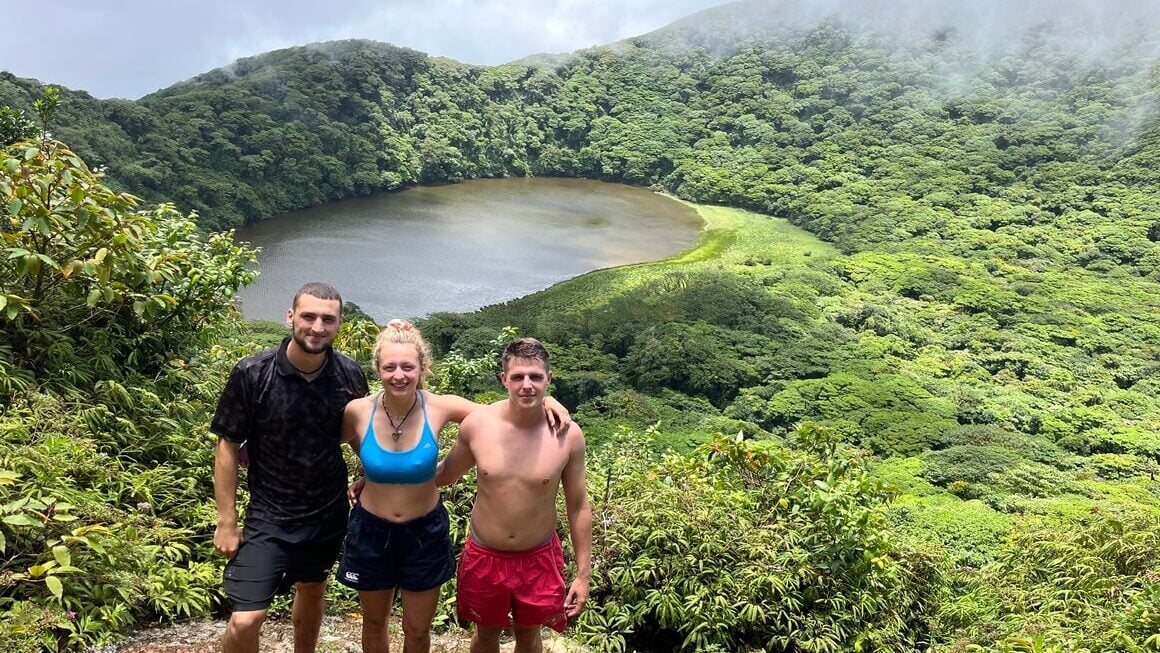
Photo: @joemiddlehurst
It’s important to know that Nicaragua is definitely not a super safe place, so a bit of caution and research before you start your travels will go a long way. If you want to increase your safety during your stay, read on for our insider travel tips. Stick to those and you won’t have a single issue in Nicaragua.
Quick tip: Plan everything in advance!
Best Nicaragua Tours: Check out the coolest tours in Nicaragua
Best Places to Stay in Nicaragua: Check out top rated hotels and hostels in Nicaragua
Best Transport in Nicaragua: Book the best transport in Nicaragua
If you’re not going to participate in protests or go near to cities, it’s more than reasonable to visit Nicaragua. In some ways, if you want a truly adventurous location where you won’t find many other travellers, this is the place.
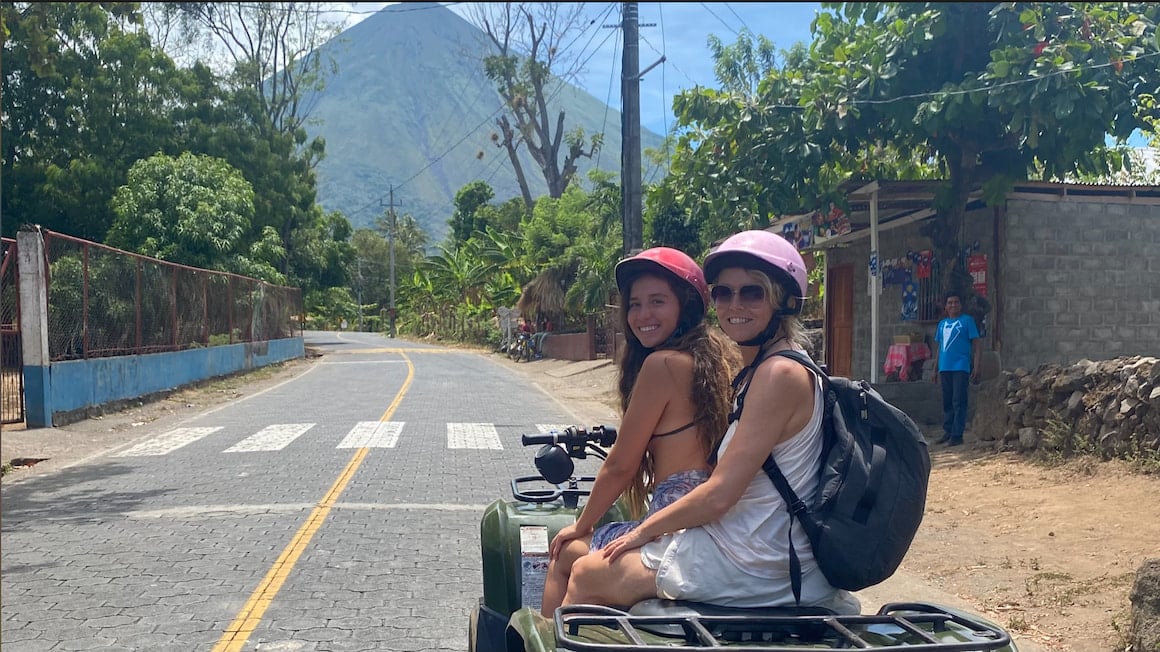
Photo: @amandaadraper
Granted, things are always up in the air – shit could hit the fan again or it could all calm down (which we hope it does). If you do decide to visit Nicaragua, here are some tips to help you on your way.
Nicaragua Safety Tips for Travelling Smooth
- Stay away from protests – DO NOT GET INVOLVED. Methods for crowd control sometimes include live ammunition…
- Know when to travel – Rainy season runs from May to November, which is when hurricanes hit, too.
- Get your Spanish on – Knowing some of the local lingo will help you to get around. It’s good for making friends, too!
- Keep an eye on your belongings – pickpockets, especially around bus terminals, are pretty active. Invest in a good money belt for ultimate protection.
- Use hotels and hostels with good reviews – 24-hour security helps; it just pays to stay somewhere amazing AND safe.
- Don’t walk around looking rich – Flashing cash, wearing jewellery, SLRs; this is pretty dumb and a good way to get robbed.
- Learn what to do during an earthquake or volcanic eruption – It’s simple, but it will definitely help.
- Don’t go ambling off the roads, especially in the north – Landmines still dot this area.
- Only change money at reputable places – Most likely you’ll be ripped off anywhere else.
- Lock car doors and keep windows closed – There have been reports of shady characters lingering around traffic lights in Managua.
- Be careful when you swim – The sea at the Pacific Coast has strong currents. Follow local advice and don’t go out too far.
- If confronted by a mugger, don’t resist – They’re often armed. This is when trouble occurs. Just hand it over.
- Have an escape plan – Let’s be honest, if shit hits the fan, you’re going to want to get out of there. Research, plan, inform others of your plans. Remain vigilant!
- Get yourself a roaming sim – Maps are helpful and so is keeping in touch with family. You can also use your phone to get live updates of ongoing situations in Nicaragua.
- Take a torch with you – For dark nights in rural areas. You don’t want to step on something that can bite you!
- And don’t travel at night either – This is a good time for criminals to operate.
- Stay away from drugs – Possessing any drugs can land you on the wrong, and we really mean wrong, side of the law.
- Don’t use drones – In fact, you can’t even bring them into the country. Say goodbye to the intro to your awesome travel video.
- Protect against mosquitoes – Cover-up, bring repellent, buy coils, whatever is best for you. These guys carry nasty diseases.
- Here be scams – Especially in Managua. It’s best to use the advice your mum told you: don’t talk to strangers.
- Watch out for children coming up to your table – it’s most likely a distraction. They’re there to pinch your cash and they usually work for a boss.
- Always use a good tour company – It might cost more, but it will be better and less dangerous.
- Don’t travel on Sundays (if you can help it) – Schedules can be completely out of whack.
- Pack yourself a medicine bag – Fill it with tablets and pills to keep diarrhoea and other illnesses at bay!
- On the subject, make sure you get relevant vaccines – No-brainer.
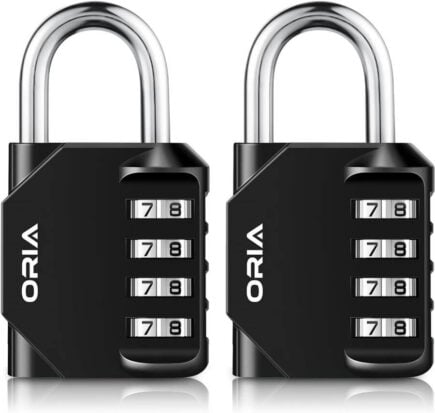
Combination Padlocks
It doesn’t get more essential than this! Not only do they allow you to lock up your backpack wherever and whenever, but they’ll also come in handy if you show up to a room without a lock. The combination style means you don’t have to worry about losing a small key either!
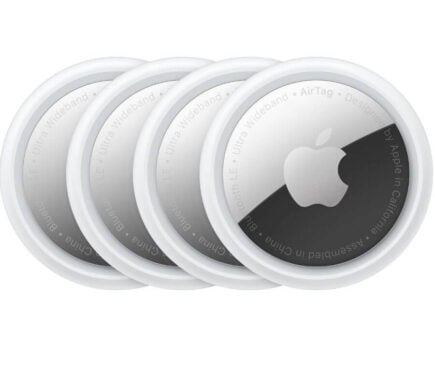
Apple Airtags
This really might be one of the best products Apple has ever made – the peace of mind it will give you when you inevitably have to check a bag is worth the price tag. I’ve found them to be super helpful and reliable, and you can put them in so many different things

Samsung Galaxy Smart Tags
The same epic concept, except for Androids
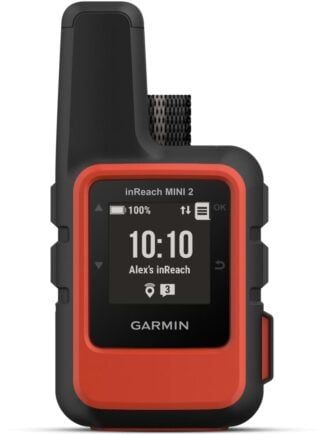
Garmin inReach Mini 2
This little satellite communication device is a must if you plan to get off the beaten path. It allows you to stay in touch with family and friends even if there’s no cell service, AND it has a SOS feature that can be activated anywhere. It even gives weather updates, a literal lifesaver when off grid.
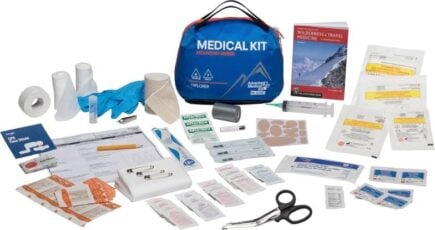
First Aid Kit
A good first aid kit should always be on your packing list, even if you’re just headed to a resort. It’s good to fill it with essential medicines as well as equipment, you never know when you’ll be caught out!
As intimidating as Nicaragua sounds, it’s still one of the safest countries in Central America. For solo backpackers, Nicaragua is a good choice.

Photo: @joemiddlehurst
Solo travel anywhere in the world is pretty rewarding, and it’s no less for travelling to Nicaragua alone. With the hope that Nicaragua can once again return to the peaceful place it was, here are some safe travel tips for Nicaragua.
Travelling to Nicaragua Alone – Tips and Pointers
- There’s a very decent selection of vibrant hostels in Nicaragua. Stylish, fun, and often boasting pools, these are also great places to meet other travellers. Just make sure it’s well-reviewed!
- Lend a helping hand. Get involved with a community project or a charity and give back to the country that you’re enjoying so much! There are loads of different organisations you can reach out to. Check out Worldpackers if you’re interested in volunteering while travelling.
- Learning some of the local language is going to really open up the country to you. And it’s not just normal Spanish, either – there’s a Nicaraguan dialect to get to grips with, and this will go down a treat.
- Book yourself on a tour. This is a good option if you want to get travel Nicaragua safely and without having to stress out. It’s also a very good chance to meet other travellers.
- Getting crazy drunk by yourself at night, either in a city or by the beach, is probably not a good idea. Alcohol is very cheap so you’ll probably want to sample a lot of it!
- On that note, know your limits. Whilst you think you may be fine wandering back by yourself, your judgement won’t be up to scratch. Taking risky shortcuts, hopping in the sea for a skinny dip, or simply getting lost, could end very badly. Especially if you’re alone.
Is Nicaragua safe for female travellers?
Whilst it is possible to travel safely in Nicaragua as a female, solo or otherwise, it’s important to note that it is a male-dominated society. Sexual assaults against female travellers have happened, especially at beach destinations where everything seems safe.
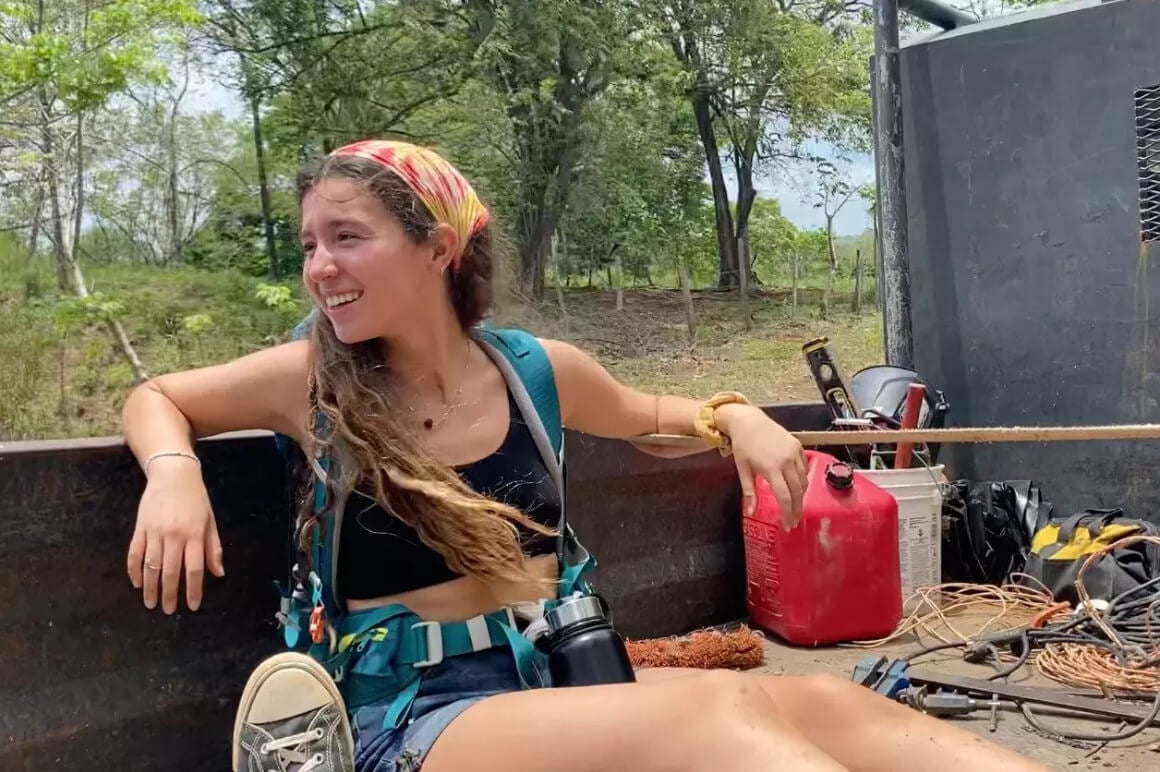
In the past, Nicaragua has been a popular place for solo female travellers. For those who are ready to re-enter the ring and travel to Nicaragua as a solo female traveller, here are a few pointers to bear in mind.
Travelling to Nicaragua as a Woman – Tips and Pointers
- Dressing appropriately and modestly is a smart move. Ok, so, you won’t have to worry about what you wear too much in a beach resort or a party hostel in Nicaragua. Elsewhere you should exercise some restraint and know that Nicaragua is still a fairly conservative country.
- Catcalls will happen because Nicaragua is a fairly macho society. Men may shout or say things to you as you walk by. The best course of action is to just ignore them.
- There ARE cases of serious sexual harassment. If someone follows you, head somewhere busy, into a shop, or somewhere that seems secure.
- DO NOT travel around at night time by yourself. Ever. For whatever reason.
- Buddy up! There are plenty of other female backpackers making their way travelling to Nicaragua. Not only is this good to actually make some friends, but is a good way to get travel tips from other women too.
- Walk around with someone else on the islands, beaches, and in broad daylight, regardless of if they seem safe or not. Deserted areas may feel beautiful, but Nicaragua can be dangerous when there’s no one around.
- If someone’s asking you about personal information, it’s best to be vague. Vague itineraries and vague life stories will keep you safe when people seem to be taking too much interest in you.
- The nightlife is fun in Nicaragua! You may be having a good time and the drinks may be flowing, but don’t let your drink out of your sight. Drink spiking could happen.
- On that note, getting stupid drunk could just lead to trouble, and this isn’t just talking about locals, but fellow travellers too. Stay vigilant – even other travellers can have bad intentions.
- If you want to learn more about local women and their lives, you can always get involved with an NGO. Nicaragua is a patriarchal society, and working with one of these could help you learn more about how the society works.
- You might want to make a stockpile of feminine sanitary products. These won’t be totally available throughout Nicaragua, especially away from the larger towns.
More on Safety in Nicaragua
We’ve covered the main safety concerns already, but there are a few more things to know. Read on for more detailed information on how to have a safe trip to Nicaragua.
Is Nicaragua safe to travel for families?
There was a time when Nicaragua was a great place to take your family. The relatively low crime rate and incredible natural credentials made it an amazing place for a family holiday.
Obviously, at the moment, the political situation currently means that travel in Nicaragua isn’t as safe as it used to be though.
Before the unrest this year it was a fantastic (and inexpensive) family-friendly holiday destination. The country still offers great amenities to those with children.
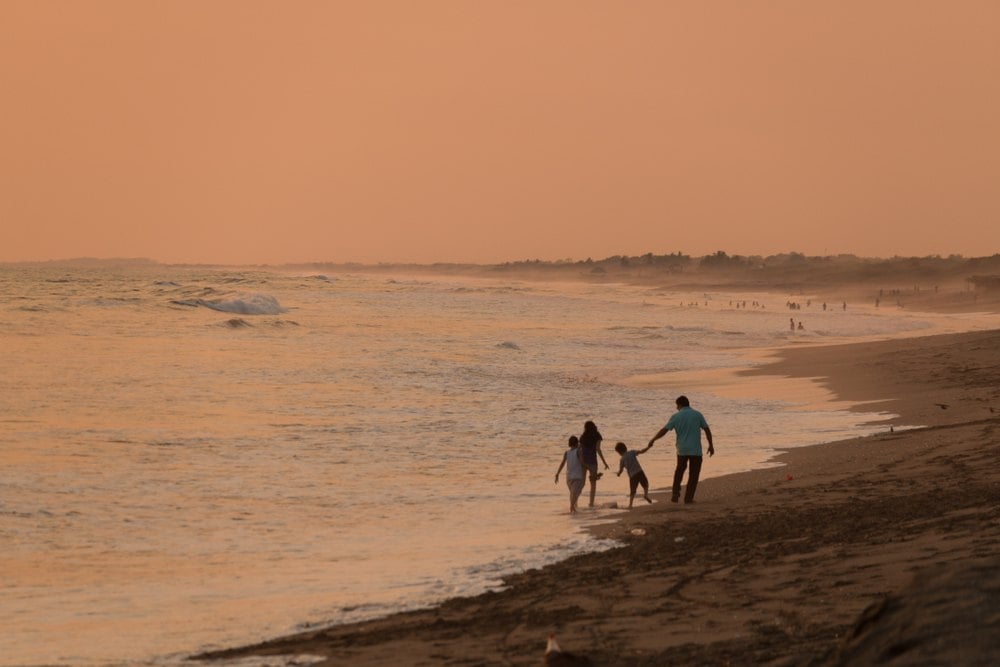
Family-based tourism in Nicaragua is still safe and mostly intact. There are some great hotels to stay at, homestays to enjoy, and a lot of local culture to soak up. Not only that but you can watch sea turtles nesting, play around in the surf, and/or visit indigenous peoples.
If you decide to travel to Nicaragua with your family, there are some things you will need first. You’ll need:
- Vaccines (obviously). Know what shots you need to go to Nicaragua.
- Protection against mosquitoes.
- To watch out for creepy crawlies like scorpions.
- Protection from the sun.
- Be careful when you’re at the beach – riptides are dangerous!
- Make sure your children stay away from stray animals.
The country has seen better days, but its attitude towards the family is still as strong as ever. It’s still fairly safe to go to Nicaragua for families.
Is it safe to drive in Nicaragua? Getting around Nicaragua.
Driving in Nicaragua is possible and people do rent cars and have an incredible time exploring for themselves. Driving is a good way to see what the Pacific Coast and Central Nicaragua has to offer.
Make no mistake, driving in Nicaragua is still an experience. You’ll have to deal with all the usual stuff and then some. Dodgy rental cars, potholes, drink drivers, lack of signs, animals in the road, no lights on highways: all of these make driving in Nicaragua not very safe.
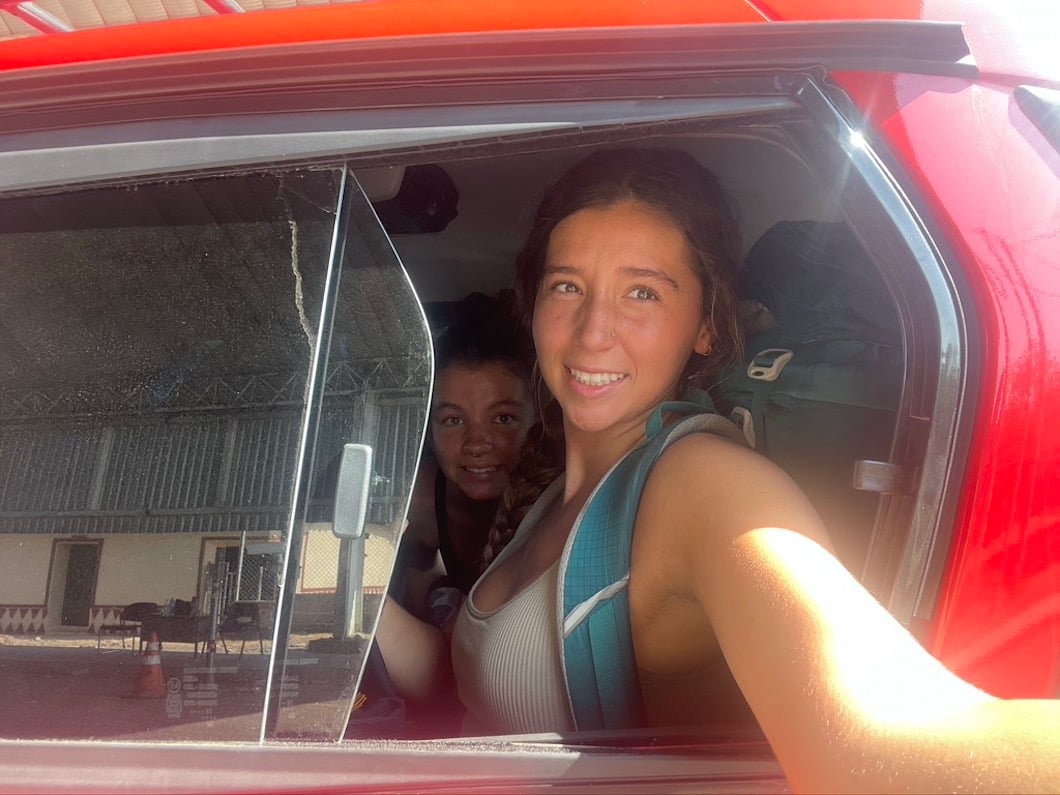
Photo: @amandaadraper
Not only that, but corrupt police might pull you over for a bribe. Use your judgement of the situation on this one.
Improvised roadblocks are all over the place and can pop up sporadically. They’re thrown up by locals and areas around these can be dangerous as police try to clear them (there’s often violence).
The barricaders themselves aren’t too interested in gringos, so don’t worry. There might be some dodgy people, but generally, barricaders are there for some political cause.
Even before 2018, we’d have said that driving isn’t safe in Nicaragua. Now? It still isn’t. Proceed according to your own abilities or get yourself a local driver.
Is Uber safe in Nicaragua?
The Nicaraguan government has refused permission for Uber to operate in the country. They don’t want to cause trouble for local taxi drivers, who are already on a low wage.
Nicaragua is an Uber-free zone, people. End of story.
Are taxis safe in Nicaragua?
Taxis in Nicaragua are not always safe. These can be very sketchy and downright dangerous.
Using a taxi is likely unavoidable though and, chances are, you’ll have to take one at some point in Nicaragua. While they may not be ideal to use, they are, unfortunately, your only option at times.
Most taxis in Nicaragua are shared taxis – this is common practice. If you don’t fancy sharing, make sure you agree on a solo journey and agree on the price before you get in. Don’t know Spanish? Write the number down and show it to the driver, but not on your phone!
Official taxis in Nicaragua have a red border around a white license plate. You should be able to see the driver’s company name, and the license plate itself should be clear, too.
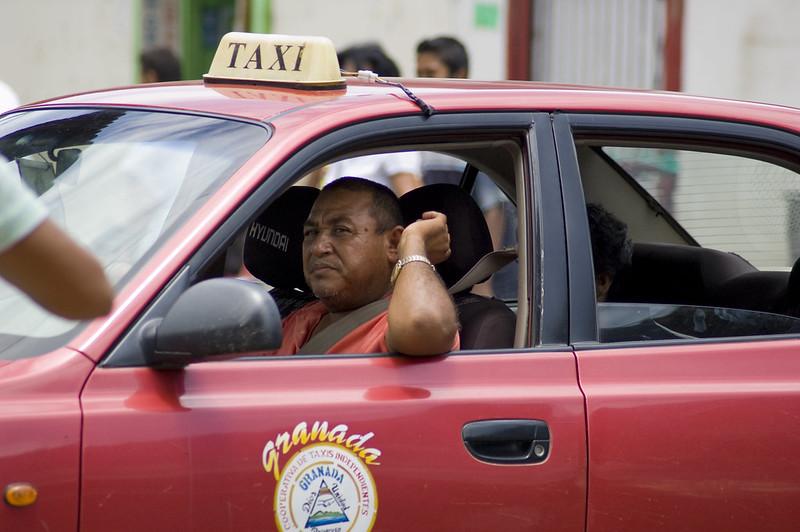
Photo: Jonathan Scott Chinn (Flickr)
Lock the doors when you get in and hide your luggage. Make sure you have small change with you so you don’t hand over stupidly large bills just to get no change back.
Unfortunately, express kidnappings have been increasing recently. These are particularly common when leaving from the airport but can happen in cities as well. Usually, these start with a stranger asking if you need a taxi and end with you being forced to an ATM instead. Don’t listen to drivers that seem overly eager or forceful.
We recommend booking a taxi through your hostel. Get staff to book a cab for you and become friendly with the driver. If they seem like a good sort, use them regularly.
Taxis aren’t what we’d call super safe in Nicaragua, but as we said…sometimes you have to use ’em. It’s still the safest way to get around at night time for that matter.
Is public transportation in Nicaragua safe?
Most towns are served and connected by chicken buses – those colourful, old American school buses that cram everybody and their livestock on board. You know the ones.
If you’re not in a hurry to get anywhere and fancy a local (if uncomfortable) experience, we say use them! Just don’t take your eyes off your bag, and be sure to watch your pockets. Keep hydrated too, ’cause it can get very, very hot on these. (Did you remember a water bottle?)
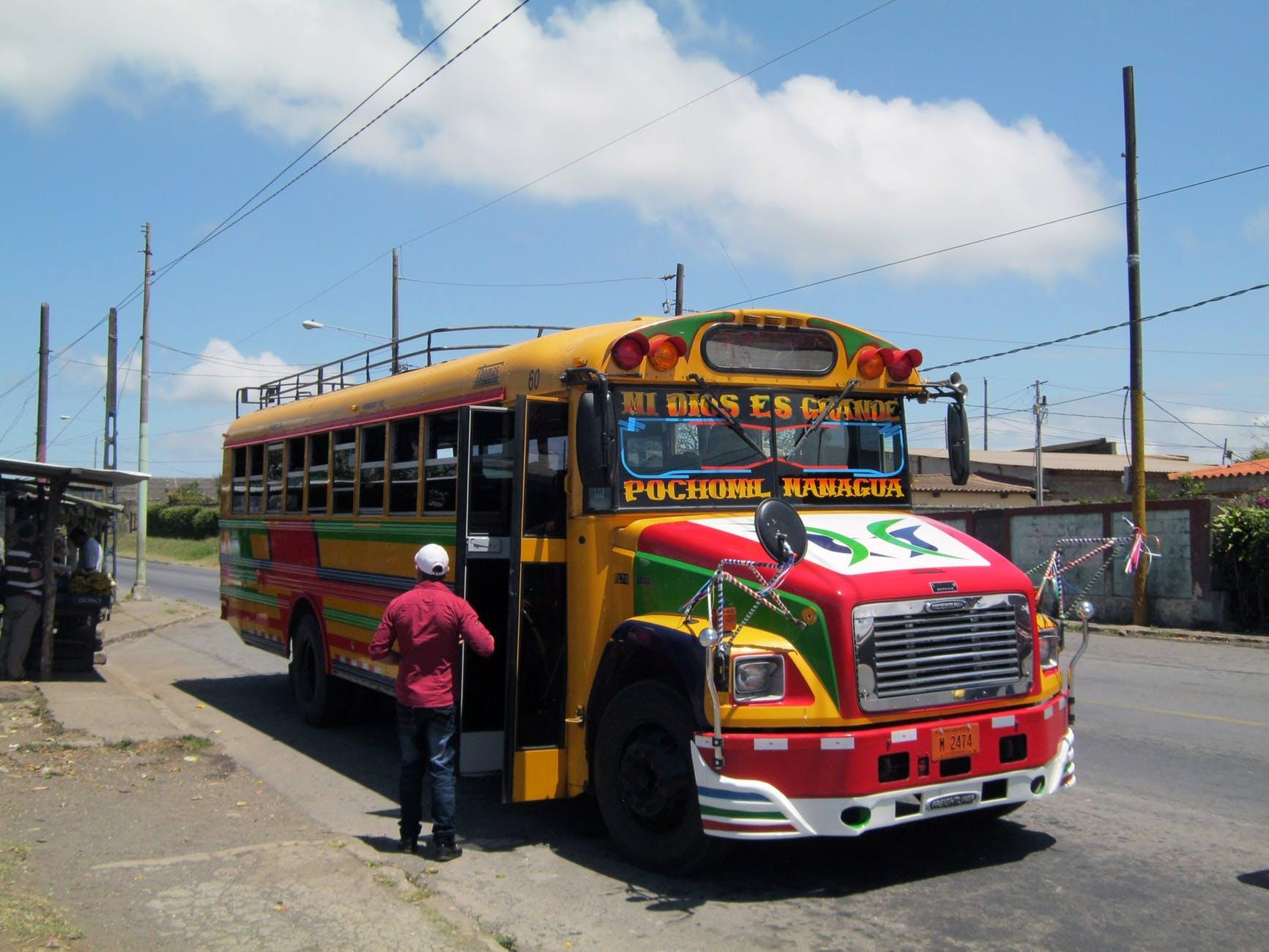
Then there are microbuses. These are smaller, faster, and more expensive than chicken buses. They leave only when they’re completely full and behave much the same as the chicken buses but in micro-form.
Bus terminals can be chaotic and overwhelming. Watch out for shady characters lingering around.
If you’re after more comfort and safety while travelling around Nicaragua, then opt for privately-owned minibuses. These are pretty luxurious compared to everything else – air-conditioned, pre-arranged through your hostel, and is more often a gringo-only experience.
Public transport in Nicaragua isn’t the safest but it’s still more than usable – many travellers do.
Is the food in Nicaragua safe?
Spanish, Indigenous, and Creole flavours mix in a tantalisingly tasty cuisine offering in Nicaragua. There’s heavy use of corn (of course) on the Pacific Coast, whilst on the Caribbean Coast, there’s seafood and coconuts galore.
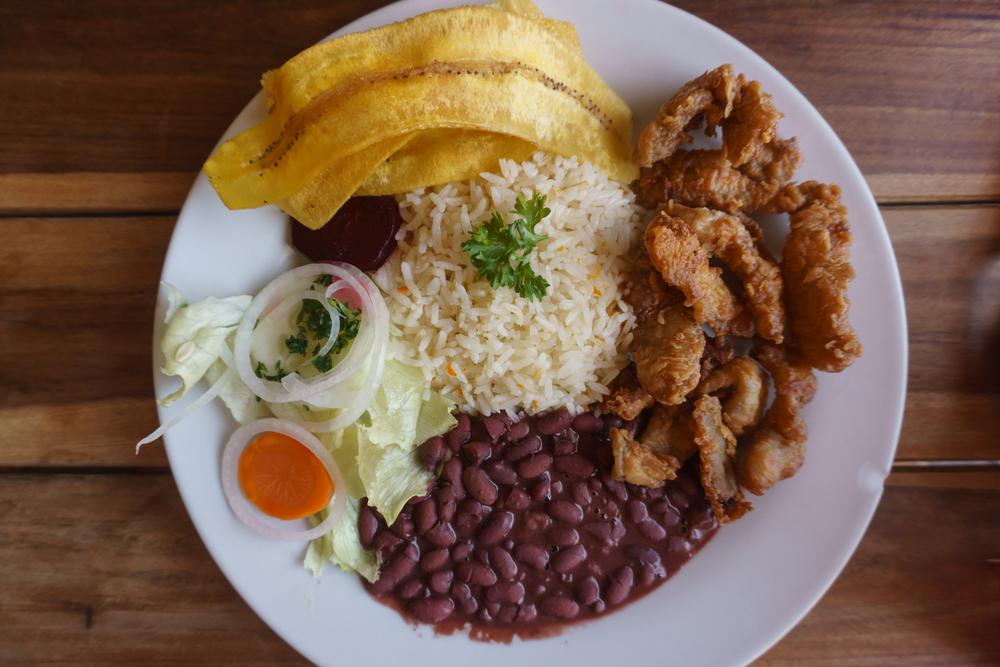
Keep clean, don’t be too greedy, and definitely use your common sense. In general, you should be fine eating your way around Nicaragua – especially if you’ve just come from somewhere else in Latin America. Even if you haven’t, you’re in for a treat. The food in Nicaragua is pretty darn safe… and delicious!
Eating Safety in Nicaragua
- Street food is where it’s at. But rushing in and eating literally everything is a BAD move. You’ll probably get sick.
- If you’re prone to a bad stomach anyway – or have a medical condition – that means your digestive system is a bit sensitive, then you may just want to take it easy in general. Bring rehydration sachets and diarrhoea medication.
- And when it comes to street food, look around. It may all look pretty good, but a rule for pretty much anywhere in the world is to go where other people are going. Busy places are good, especially if they’re more local.
- If meat, or any food for that matter, isn’t freshly cooked – and especially if it looks like it’s been sitting uncovered all day – don’t even bother.
- You may really want a smoothie because, no joke, they look amazing. But be careful of anything raw. Fruit, washed or unwashed, can be crawling with germs.
- Same goes for salads and vegetables. Peel, wash with sterilised water, cook, but don’t eat raw. A good way to get a bad tum.
- … And ice cubes? Could be tap water.
- Seafood is very popular here and it’s prepared in wonderful ways! It is probably best tried in a restaurant or the in-house eatery at your hostel/hotel/guesthouse. Eating seafood on the street is usually a bad idea and you’ll be asking for trouble if you do so.
- Wash your hands, forever and always. Or (and), sanitise.
- Traveling with an allergy? Research ahead of time how to explain your allergy (or just vegan). If you’re gluten-free, pick up a handy Gluten-Free Translation Card with descriptions of Celiac disease, cross-contamination risk, and local Nicaraguans ingredients in Latin American Spanish.
Can you drink the water in Nicaragua?
The water in Nicaragua is allegedly potable and safe to drink.
Many Nicaraguans drink the tap water, but you may get Traveller’s Diarrhoea if you try.
If you don’t feel comfortable, then don’t risk drinking from the tap. Stick to bottled water, or bring a refillable bottle and water purification tablets. Boiling water is always the surest way to eliminate harmful organisms.
A Grayl Geopress would also be a great investment as these are quite effective in the field. Seriously, filtered water bottles are the best.
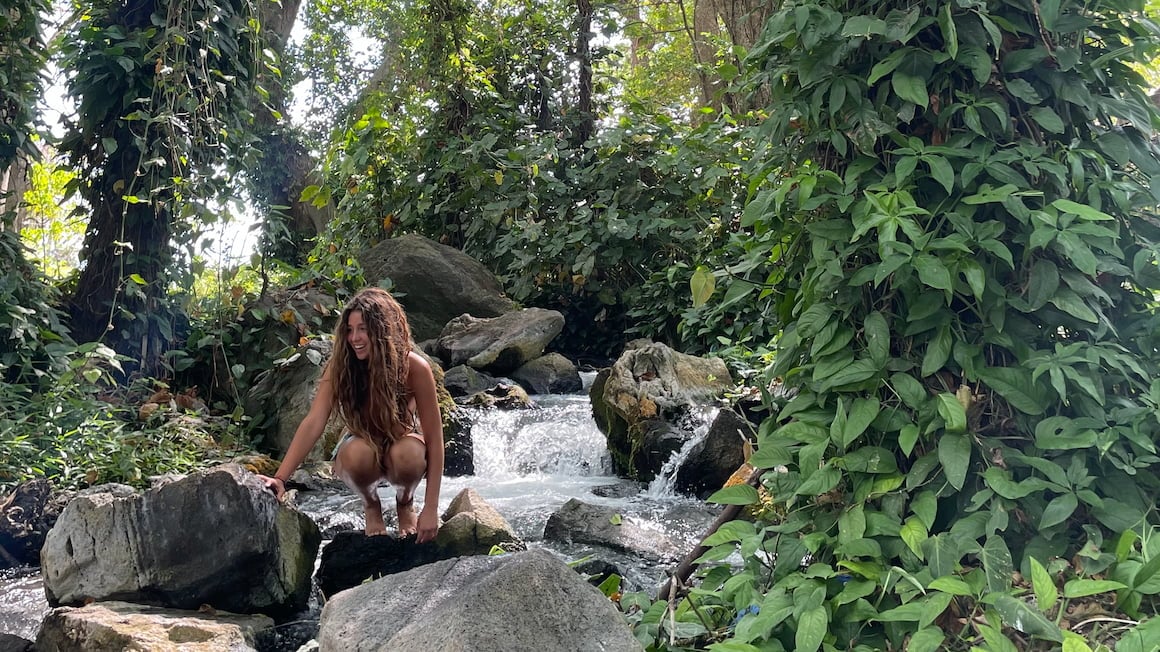
Photo: @amandaadraper
Is Nicaragua safe to live?
Many ex-pats end up living in Nicaragua. It’s safer than its neighbours, has a generally laid-back lifestyle, low cost of living, good food, and some amazing natural landscapes. If anything, it’s becoming an increasingly popular destination for ex-pats but there are aspects that mean Nicaragua is not safe to live in.
You’ll still be targeted like any other travelling gringo – that means petty theft and scams are still things to look out for. Trying your best to blend in, not being flashy, not shouting around in English; these things will help you live more easily in Nicaragua.
Learning Spanish is a must. Even if it’s just a little bit, learning the local language will help you get around.
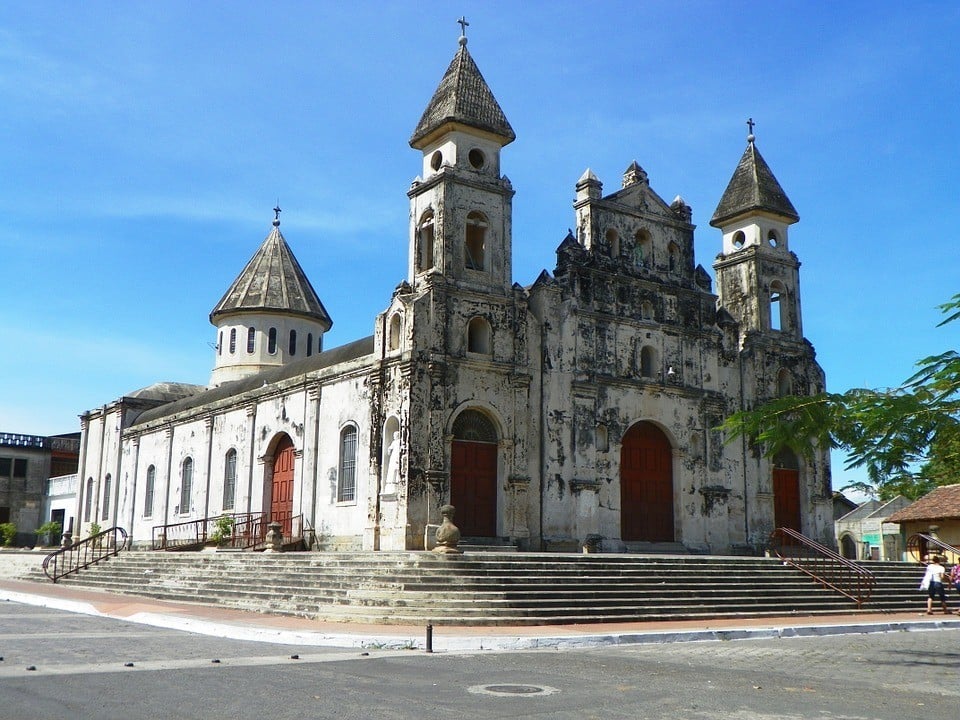
The urban infrastructure is inhibited greatly by the unrest. There’s often a shortage of fuel, frequent power outages, somewhat limited food supplies, and a heavily censored media. When there’s a big confrontation the internet gets shut off, the roads are blocked, and the paramilitary presence increases greatly. At this point, protests and even looting are usually on deck.
Living in Nicaragua, you’ll have to be ok with this instability. Living in Nicaragua has its pros and cons.
If you want to know more about the current situation, you really should do your research. At the end of the day, I wouldn’t say living in Nicaragua is safe but you may be of a different mind.
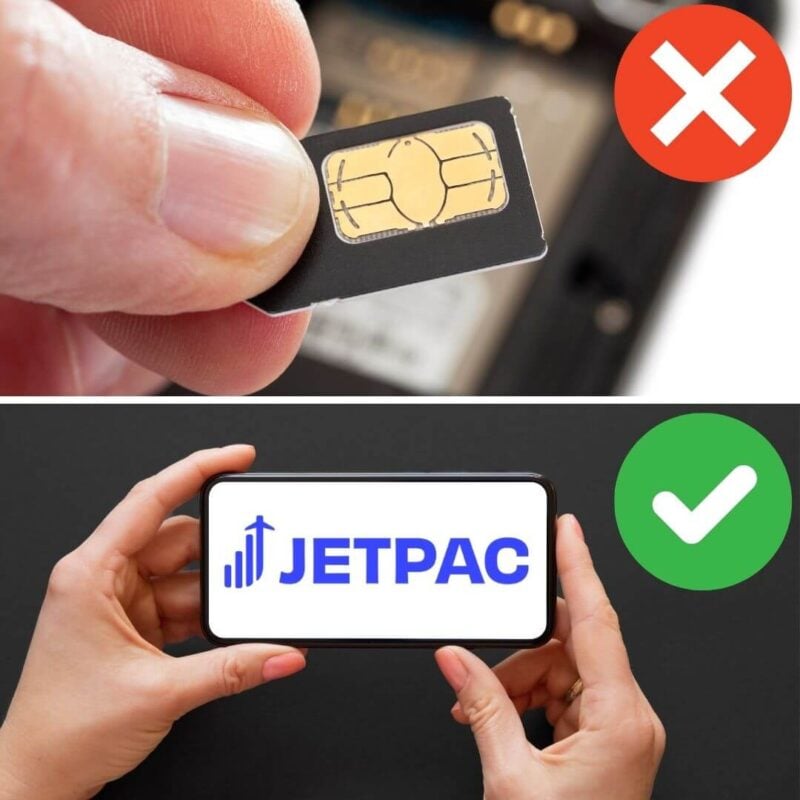
A new country, a new contract, a new piece of plastic – booooring. Instead, buy an eSIM!
Jetpac eSIMs work just like an app: you download it, pick your plan, and BOOM! You’re connected the minute you land. It’s that easy.
Read about how e-Sims work or click below to see one of the top eSIM providers on the market and ditch the plastic.
Grab an eSIM!Is it safe to rent an Airbnb in Nicaragua?
Renting an Airbnb in Nicaragua is a great idea. Unfortunately, there are not an incredible amount of options, but the ones you are getting are pretty safe. Just don’t expect super high luxury.
And it’s perfectly safe, as long as you read the reviews. Staying at an Airbnb during your trip will also open up new possibilities and options to experience the country. The local hosts are known to take great care of their guests and give the absolute best recommendations of what to do and what to see. Local knowledge always goes a long way, so be sure to reach out to your hosts if you’re unsure about how to fill up your Nicaragua itinerary!
On top of that, you’ll stay safe with the reliable Airbnb booking system. Both hosts and guests can rate each other which creates a very respectful and trustworthy interaction.
Is Nicaragua LGBTQ+ friendly?
Nicaragua is fairly open to same-sex relationships. Keep in mind that it’s a pretty conservative country, so be aware of the culture and religion is a must. You can also expect quite a few stares and maybe one or two rude comments. However, you won’t face any other issues as an LGBTQ+ traveller.
Party destinations like San Juan del Sur are more open-minded thanks to a generally younger crowd and more travellers. If you’re worried about your safety, stick to these kinds of places!
FAQ about Staying Safe in Nicaragua
Here are some quick answers to common questions about safety in Nicaragua.
So, is Nicaragua Safe?
Although plagued by petty theft and civil unrest, Nicaragua is still one of the safer Latin American countries you could choose to visit.
It’s an interesting one as well since it’s sandwiched between two of the most visited countries of Central America yet remains generally undiscovered by backpackers. Even so, the tourism industry is the second biggest in the country and it could be even bigger under different circumstances.
With the advent of some serious political trouble in Nicaragua safety has come into question and tourists have been opting to not travel here. At its worst, between May and November of 2018, hostels had closed their doors and tour companies stopped operating. Backpackers ARE starting to trickle back in, but the fact remains that the situation isn’t stable.
Is Nicaragua safe for travel? It’s like a bubbling pot. There’s a chance it could boil over but the tourist status changes thing, as it usually does Nicaragua is mostly safe for tourists provided you understand the political situation and the volatility of it.
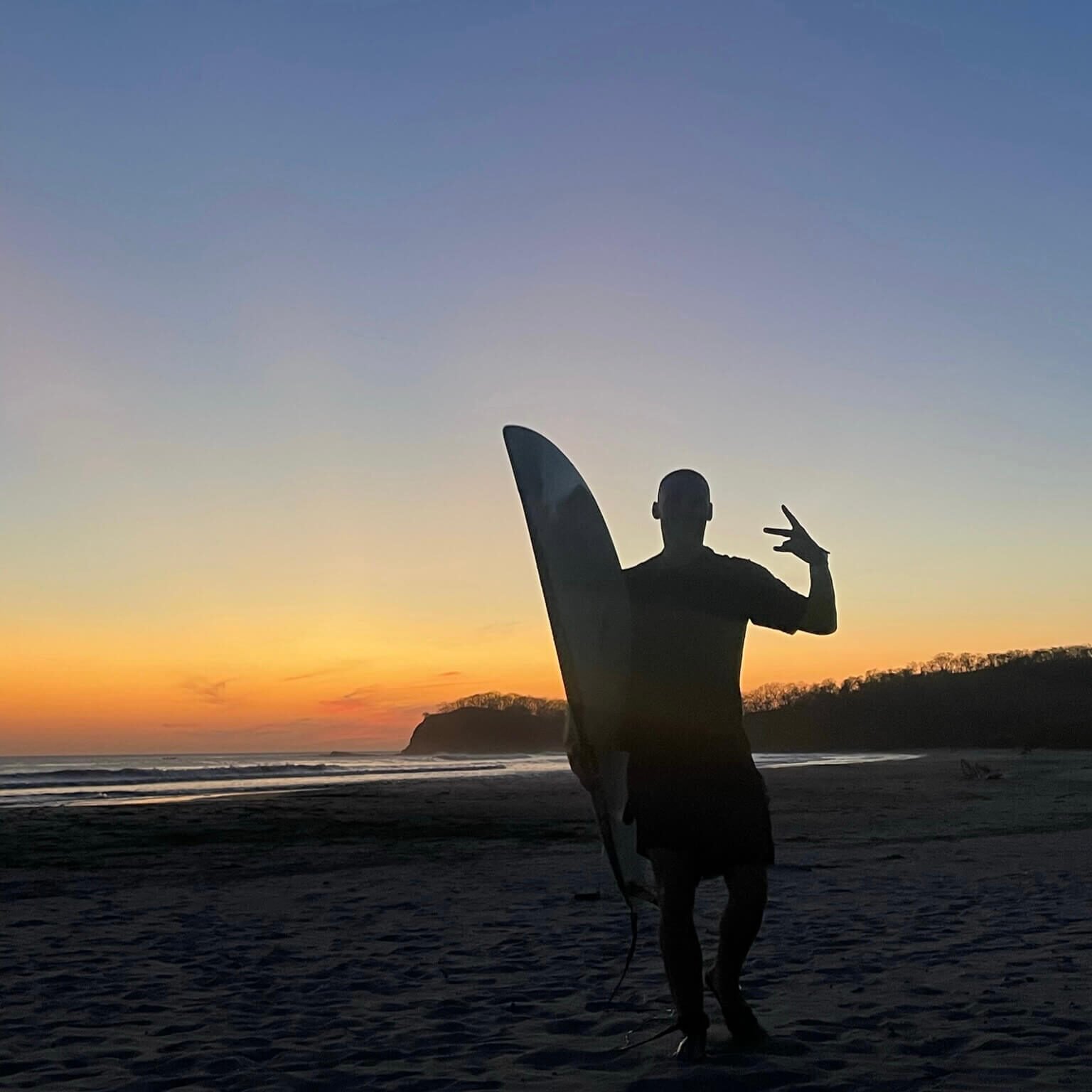
Photo: @joemiddlehurst
Disclaimer: Safety conditions change all over the world on a daily basis. We do our best to advise but this info may already be out of date. Do your own research. Enjoy your travels!
Buy Us a Coffee!
A couple of you lovely readers suggested we set up a tip jar for direct support as an alternative to booking through our links. So we created one!
You can now buy The Broke Backpacker a coffee. If you like and use our content to plan your trips, it’s a much appreciated way to show appreciation 🙂



